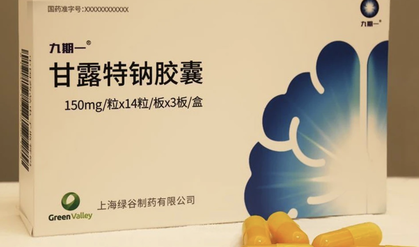|
By Melinda Li Edited by Sophia Collis On November 2, the Shanghai-based Green Valley Pharmaceuticals company announced that its drug, Oligomannate, was approved by the Chinese National Medical Products Administration for the treatment of “mild to moderate Alzheimer's disease and improving cognitive function.” [1] This comes as exciting news to the field of drug development for Alzheimer’s as the last therapeutic treatment, Mematine, was approved seventeen years ago. [2] Since then, billions of US dollars have been invested in over four hundred clinical trials with little success. [3]  Link to image source: https://www.healthcarepackaging.com/home/article/21096070/quick-hits-china-approves-worlds-first-new-alzheimers-drug-in-20-years Link to image source: https://www.healthcarepackaging.com/home/article/21096070/quick-hits-china-approves-worlds-first-new-alzheimers-drug-in-20-years Oligomannate is a seaweed-derived sugar that acts as an anti-inflammatory agent in the brain by altering gut bacteria. According to lead investigator Dr. Geng Meiyu, the development was inspired by the observation that there was a low incidence of Alzheimer’s in elderly people whose diet regularly included seaweed. [4] Preclinical data published by the team in Cell Research showed that in mouse subjects genetically engineered to have Alzheimer’s, sodium oligomannate modulated both gut bacteria and brain inflammation. [5] A randomized double-blind phase 3 clinical trial involving 818 patients demonstrated that the drug improved patient scores on ADAS-Cog12, a cognitive measure commonly used in studies on Alzheimer’s. [1] Neurologist Philip Scheltens, an advisor for Green Valley, says that "these results advance our understanding of the mechanisms that play a role in Alzheimer's disease and imply that the gut microbiome is a valid target for the development of therapies.” [6] However, others in the scientific community warn against being prematurely optimistic about the new drug. Although the results for the drug on human subjects have been released, they have not been published formally in a journal, and improvements were only observed in one out of several different cognitive tests. [7] “The findings need to be replicated in order for this to be safely prescribed,” says Dr. Aaron Ritter, director of clinical trials at the Cleveland Clinic’s Lou Ruvo Center for Brain Health in Las Vegas. [7] “We’re always excited to have a new potential treatment, but I certainly would not prescribe it to my patients based on a single study or another country’s approval until we know more about it,” says Dr. Joy Sneider, a neurologist at Washington University in St. Louis. [8] Thus, until more is known about the safety and efficacy of this new drug, it seems the broader medical community will broach Oligomannate with caution and skepticism - though there is promise here. Works cited: [1] https://www.greenvalleypharma.com/En/Index/pageView/catid/48/id/28.html [2] https://www.ncbi.nlm.nih.gov/pmc/articles/PMC4095696/ [3] https://www.telegraph.co.uk/china-watch/technology/new-alzheimers-drug/ [4]https://www.scmp.com/news/china/science/article/3036119/china-approves-oligomannate-worlds-first-new-alzheimers-drug-20 [5] https://doi.org/10.1038/s41422-019-0216-x [6] https://www.cnn.com/2019/11/03/health/china-alzheimers-drug-intl-hnk-scli/index.html [7] https://www.webmd.com/alzheimers/news/20191105/new-alzheimers-drug-from-china-hope-or-hype [8]https://www.statnews.com/2019/11/04/a-new-alzheimers-therapy-is-approved-in-china-delivering-a-surprise-for-the-field-but-also-questions/
0 Comments
Leave a Reply. |
